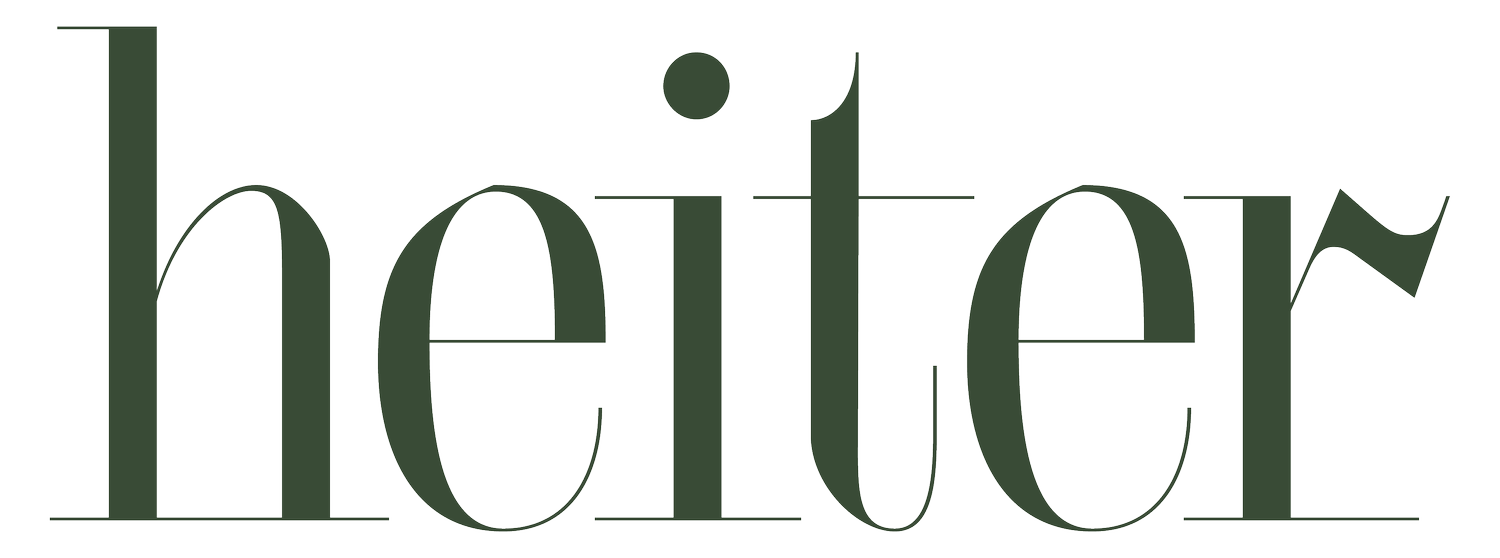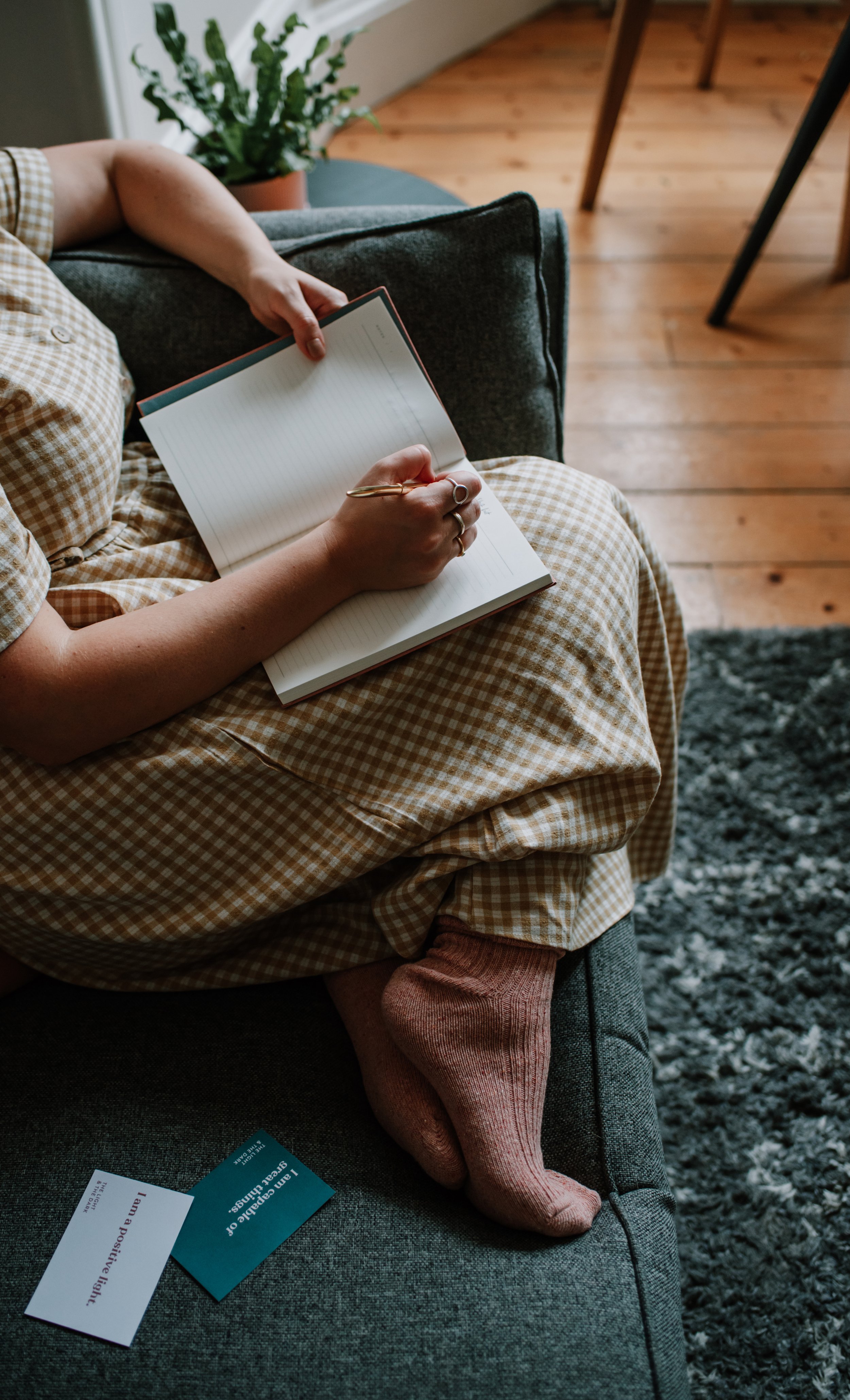Tiny Changes with The Artist's Way
The Artist’s Way set me on the path of flexing my creative muscles, building a new business and penning my first memoir, but the tiny changes made en route are what left a lasting imprint.
Julia Cameron’s acclaimed book on recovering your creativity, based on a program she developed in the 1990s, had been sitting on my shelf for months. Years, perhaps. And I had the gnawing sense that it might be time to open it.
I had been journaling for many years—Cameron’s suggested method is Morning Pages, a bit beyond my usual commitment to writing—and I had learned something of the process from others. So, being curious, I was tempted to give it a try.
It was late 2019, and I felt an absence of creativity in my life. A void I longed to fill. So it seemed like the perfect opportunity to embark on something that I could hold onto, and that might hold me. I plucked up the courage to ask if anyone would like to tag along and form a creative cluster. And the response was positive. So, it was set. We’d begin on a Sunday evening in January 2020 with an initial call, then check in weekly after reading and moving through each chapter.
Something I learned early on was to ensure I had adequate space to focus on the 12 weeks. Not being one of life’s finishers means I'm often drawn to the fresh and new, so time blocking was vital. A few hours on a Monday evening and Saturday morning worked well, and 30 minutes each morning, though sometimes I went that little bit deeper, and at other junctures, I went easier on myself. Essential to finishing was approaching the reading and writing in a way that felt doable and, perhaps more importantly, enjoyable.
I knew the group might fizz out or even fail to get off the ground. After all, there was no financial burden, only a personal dedication to our creative growth. And I was a tiny bit petrified about hosting the calls and walking this path with those I didn’t know. It was a leap! But I had this hunger to go through the process, even if it was awkward and complex and messy because I believed that—even if it was tough, and for spells it was—the experience would be infinitely more positive than the alternative: not trying at all.
If you've read the first chapter of The Artist's Way, you'll know that Julia Cameron doesn't mess around. Week one is a foundation in confronting and releasing all the negative thoughts that our inner artist has internalised. These beliefs may relate to those who have criticised or discouraged us, and the task is to face those old "monsters” and begin replacing doubt with trust and fear with hope. We are also encouraged to start Morning Pages, also known as stream-of-consciousness writing, which proved to be a task for me. But as the foundation of our creative recovery, I committed because those pages are a safe space for raw words.
Weeks two and three built on this journey of nurturing our inner artist, tending to our desires and creating a sense of adventure. Chapter after chapter, the group raised each other while diving into our sense of identity and power, and then integrity and possibility in chapters four and five. I remember feeling excitement around this point as I considered my boundaries and experimented with ideas. But I was also wondering what was happening in the world around us. It turned out this was a timely moment to have started because, soon, the doors to the outside world would close with the pandemic, and our cluster would prove to be a lifeline in many ways. We all experienced loss in some shape or form; the loss of family or friends, the loss of our sense of safety, and the loss of freedom. There was much to mourn. But The Artist’s Way also brought us escapism and the chance to daydream about how we might change our lives once this period was over.
As we immersed ourselves in the sixth week, the halfway point, embracing the topic of abundance somehow felt easy, and I was ready to receive all the practices had to offer. Slowly but surely, there was a release of 'stuckness'. Even when perfectionism started to rear its head, and chapter seven proved to be challenging and rewarding, I found a way of carrying on. Cameron says: “Perfectionism has nothing to do with getting it right. It has nothing to do with fixing things. It has nothing to do with standards. Perfectionism is the refusal to let yourself move ahead. It is a loop - an obsessive, debilitating closed system that causes you to get stuck in the details of what you are writing or painting or making and to lose sight of the whole.” In short, we are constantly questioning our efforts and paralysing ourselves. Taking imperfect action is the only remedy for this and so began the cycle of actively shifting towards our goals.
Week eight offered us coping strategies for building strength and resilience to take these small efforts towards big changes. And we paid attention to the simplest things we could do to arrive at where we wanted to be. I recall chapter nine was pivotal in supporting these efforts as we recovered our sense of compassion. Holding myself to an unrealistically high standard is something I'm mindful of, and a quest for the best has often bled into my work as a designer, mentor and writer. So it was vital to dig deep, take steps, and turn towards trust. It seemed there was now so little to fear, and I was consciously moving blocks and catching myself before falling into self-sabotage.
Navigating chapters 10 and 11 and their themes of self-protection and autonomy felt lighter somehow. There was a sense of pride underlying our efforts in those remaining weeks. And I welcomed the opportunity to face my previous battles with workaholism, comparison and anxiety, things that have repeatedly gotten in the way of my creativity. I was also reflecting on my work and my worth. 'What is it that lights me up?' is a question I lingered on then and long after the finishing line.
As we approached week 12, a chance to recover our sense of faith in ourselves, dread crept in around the fact we'd no longer be travelling this path together. I was uncertain yet excited. Full of courage yet fearful. But I was also confident that everything I had worked for up until that point would prepare me for my next step. It was an effort to finish, but there was a quiet determination among us as we carried each other in those last sessions.
In the weeks and months that followed, we lost touch, but I’ll never lose sight of the experience. It’s now been three years since I first embarked on The Artist's Way, two years since I started my new business and one year since I began writing my book. And I'm not sure either would exist had I not immersed myself in this process.
But what I’m most proud of are the tiny changes; the time carved to explore ideas, the space made to pursue things I enjoy, the boundaries established, and the habits created. Those are the things that offer me daily conviction in my choices and the chance to open my heart and mind to what I most need and what I most want.
This path isn't pretty. But if you embark on it, you'll emerge lighter and brighter, ready to reframe and retell your story. No change in the facts. Just a new stance on life. One where you no longer have an appetite for dwelling on how events have unfolded but an appreciation for how events can unfold you.
The Artist's Way is a fork in the road that very few take, mainly through a lack of confidence or the time to commit. But there is beauty in showing up imperfectly and unpolished, with nothing but a desire to unfurl and ask yourself the question: what could be?
Words by Sarah Robertson, images by Aiste Saulyte
Sarah Robertson is a designer, mentor and writer from Edinburgh, Scotland. She now lives in the Scottish Borders with her family, runs branding studio These Are The Days and is writing her first book, a memoir inspired by curiosity and creativity.


